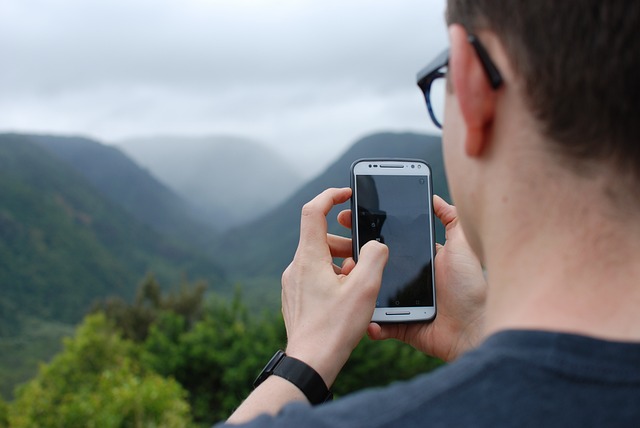Automated calling systems offer nonprofits in Las Cruces a powerful tool for fundraising, but they must navigate complex legal landscapes, especially the Telephone Consumer Protection Act (TCPA) in New Mexico. To ensure compliance and avoid fines, nonprofits should consult with specialized autodialer lawyers or law firms, who can guide them on consent acquisition, call management, and opt-out provisions, ensuring ethical fundraising while leveraging automation's potential. These experts help maintain legal integrity, protect consumer rights, and foster stronger donor relationships.
In Las Cruces, nonprofits looking to boost fundraising efforts often turn to automated calling systems. However, utilizing these technologies comes with legal considerations under the Telephone Consumer Protection Act (TCPA) in New Mexico. This article guides nonprofits through navigating TCPA regulations and permits required when using autodialers. We explore best practices, case studies, and expert insights from top autodialer lawyers in New Mexico to ensure compliance and protect your nonprofit from potential legal pitfalls.
Understanding Automated Calling Systems and Their Legal Implications in Nonprofit Fundraising
Automated calling systems have revolutionized fundraising strategies for nonprofits, allowing them to reach a broader audience and increase donation yields. However, this technology also brings legal considerations that organizations must navigate carefully. In New Mexico, the use of autodialers is subject to specific regulations designed to protect consumers from unwanted calls, including those made for charitable purposes. Nonprofits using automated calling systems should consult with an experienced autodialer lawyer in New Mexico to ensure compliance with laws such as the Telephone Consumer Protection Act (TCPA).
These legal experts can guide nonprofits on best practices for obtaining proper consent, managing call lists, and providing opt-out mechanisms to respect consumer preferences. Failure to adhere to these regulations can result in significant financial penalties and damage to an organization’s reputation. By working with a knowledgeable autodialer attorney or autodialer law firm in New Mexico, nonprofits can maximize the benefits of automated calling while minimizing legal risks, ensuring that their fundraising efforts remain effective and ethical.
Navigating Telephone Consumer Protection Act (TCPA) Regulations in New Mexico
Nonprofits in Las Cruces considering automated calling systems for fundraising must navigate the Telephone Consumer Protection Act (TCPA) regulations specific to New Mexico. The TCPA, a federal law, restricts the use of automatic dialing systems and prerecorded messages for telemarketing purposes, but exemptions exist for noncommercial solicitations like charity calls. However, these laws can be complex, and nonprofits must ensure they comply to avoid costly fines.
In New Mexico, an autodialer lawyer or attorney specializing in TCPA law can provide guidance tailored to the unique needs of charitable organizations. An autodialer law firm with expertise in this area can help nonprofits understand when and how to use automated calling effectively while adhering to the law. This includes ensuring consent is properly obtained and documenting donor preferences, as well as providing clear opt-out mechanisms for those who wish to discontinue receiving calls.
Permits and Disclosures: Ensuring Compliance for Nonprofits Using Autodialers
When nonprofits in Las Cruces consider using automated calling systems or autodialers for fundraising, they must navigate a crucial aspect: permits and disclosures. Engaging in telemarketing activities requires compliance with both state and federal regulations to protect consumers’ rights. Nonprofits should consult an experienced autodialer lawyer in New Mexico to ensure adherence to these laws.
In New Mexico, the Public Regulation Commission oversees telemarketing practices, including the use of autodialers. Nonprofit organizations must obtain the necessary permits and adhere to specific disclosure requirements when making automated calls. These measures are designed to inform consumers about the nature of the call and provide them with options to opt-out, ensuring a respectful and compliant fundraising process. An autodialer attorney can guide nonprofits through this process, offering tailored advice to meet their unique needs while maintaining legal integrity.
Best Practices and Case Studies: Protecting Your Nonprofit from Legal Pitfalls with Automated Calling
When implementing automated calling systems in Las Cruces for fundraising initiatives, nonprofits must adhere to strict legal guidelines to protect their operations and donors’ privacy. Best practices involve ensuring explicit consent from callers, providing clear opt-out mechanisms, and adhering to time restrictions on calls. Nonprofits should also familiarize themselves with the Telephone Consumer Protection Act (TCPA) and local regulations in New Mexico, consulting with an experienced autodialer lawyer or attorney to navigate these legal considerations effectively.
Case studies of successful nonprofit fundraising campaigns utilizing automated calling systems highlight the importance of compliance. Organizations that respect donor preferences and follow legal protocols have not only avoided legal pitfalls but also fostered stronger donor relationships. Engaging the services of reputable autodialer law firms in New Mexico can provide tailored guidance, ensuring nonprofits maximize their reach while minimizing regulatory risks. This proactive approach allows them to focus on their mission rather than legal complexities.






